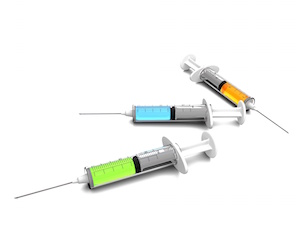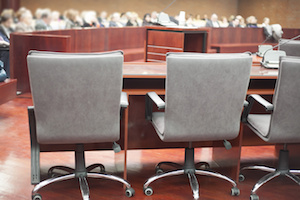One of the greatest challenges that expert witnesses face is explaining technical concepts in simple language that lay jurors can understand. Experts who are used to discussing their work with professional colleagues assume a basic level of familiarity with the language of science that lay jurors lack. Frustrated lawyers who ask experts to “explain that in simpler language” are matched by frustrated experts who do not believe that simple language can convey complex ideas.
Understanding that experts have important information that the public needs to understand, the National Science Foundation recently awarded a $540,000 grant to the Expert Witness Training Academy, a project of William Mitchell College of Law in St. Paul, Minnesota. The funding to date has been used to train climate and atmospheric scientists. About two dozen scientists participate in the training each year.
Allowing experts to become comfortable with the difference between lecturing in a collegial atmosphere and testifying in an adversarial proceeding is one of the program’s goals. Even when speaking to the general public, however, the confrontational nature of climate change and its impact on public policy underlines the importance of teaching climate scientists how to communicate effectively. The Academy stresses that it does not teach scientists to be an advocate for any particular position, but focuses on helping scientists justify their findings and conclusions by making science comprehensible to their lay audiences.
How experts develop communication skills
In addition to helping experts communicate with the public, the Academy provides workshops and other training to help experts learn to communicate effectively in adversarial settings, including trials and legislative hearings. The training allows scientists to participate in simulated trials, depositions, arbitration proceedings, legislative hearings, and media interviews. Scientists learn to use technologies such as power-point presentations to break their reasoning into digestible portions that lay people can more easily absorb.
One fictitious scenario involved a cloud-seeding operation designed to end a drought that resulted in a flood, causing extensive property damage and killing several people. Half the scientists were assigned to work with lawyers representing flood victims while the other half worked with defense lawyers representing a state agency that authorized the cloud-seeding and the company that conducted it. At the end of a mock trial, the scientists sat in on jury deliberations to learn how their testimony was viewed by the lay individuals who listened to it.
Learning opportunities for expert witnesses
This summer will be the third program that the Academy has undertaken to train climate and atmospheric scientists. The Academy hopes to expand its program in the future to train scientists to communicate about fracking, public health, and other controversial fields that would benefit from reasoned explanation in comprehensible language. The NSF grant will allow the program to continue and to expand during the next three years.
Private training for expert witnesses is available from a variety of organizations, such as The American Institute for Expert Witness Training. Learning to communicate complicated ideas to an unschooled audience is a worthwhile pursuit for experts, whether through formal training or by working closely with attorneys who help them testify effectively.













